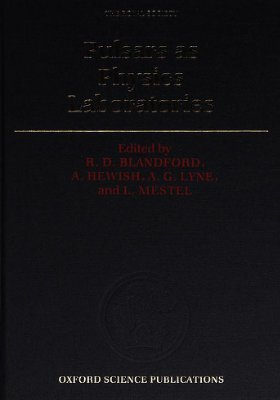Oxford University Press, 1993, 192 Pages
The discovery 25 years ago of the remarkable astronomical objects known as pulsars-and their identification as neutron stars-fulfilled a prediction made more than 30 years earlier. Over 550 pulsars are now known, almost all detected at radio frequencies which capture their distinctive bursts of electromagnetic energy. These pulse periods range from 1.5 milliseconds to several seconds. Most pulsars are single neutron stars but they can also exist in a binary orbit with a companion. Observations have revealed a wealth of detail about the structure and evolution of pulsars and the pulse-emission process, giving new insight into the behavior of matter in the presence of extreme gravitational and electromagnetic fields. In fact, pulsars have unique physical properties which make them nearly ideal as probes for a wide range of physical studies. This volume gathers together up-to-date findings in this area, representing a valuable resource for theoretical and particle physicists as well astrophysicists and astronomers. The contributors are recognized experts in the field, and include such well-known authorities as Joe Taylor who describes his Nobel-Prize winning work.
The discovery 25 years ago of the remarkable astronomical objects known as pulsars-and their identification as neutron stars-fulfilled a prediction made more than 30 years earlier. Over 550 pulsars are now known, almost all detected at radio frequencies which capture their distinctive bursts of electromagnetic energy. These pulse periods range from 1.5 milliseconds to several seconds. Most pulsars are single neutron stars but they can also exist in a binary orbit with a companion. Observations have revealed a wealth of detail about the structure and evolution of pulsars and the pulse-emission process, giving new insight into the behavior of matter in the presence of extreme gravitational and electromagnetic fields. In fact, pulsars have unique physical properties which make them nearly ideal as probes for a wide range of physical studies. This volume gathers together up-to-date findings in this area, representing a valuable resource for theoretical and particle physicists as well astrophysicists and astronomers. The contributors are recognized experts in the field, and include such well-known authorities as Joe Taylor who describes his Nobel-Prize winning work.

